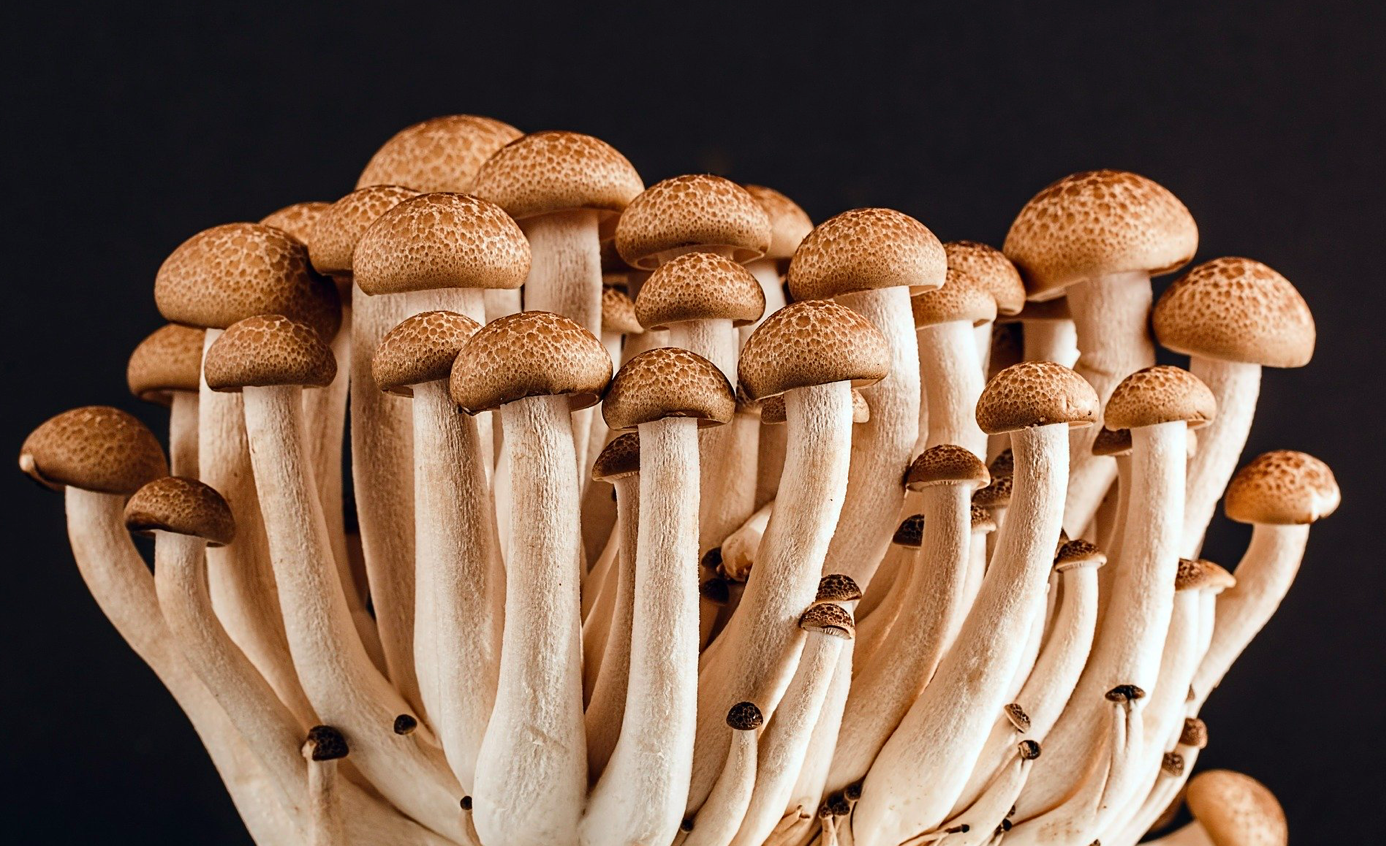With the excellent health benefits they offer, there is no reason not to include mushrooms as a regular part of your diet. Try incorporating them into more meals, and see the benefits for yourself!
Mushrooms are incredibly versatile and taste fantastic in savory dishes. They can be grilled, roasted, sautéed, stuffed, cooked in soups, or eaten raw, and are nutritional powerhouses with tremendous health benefits. There are dozens of delicious edible mushrooms to choose from different flavors, textures, and health properties.
If you are inclined, you can forage for them in the forest, but only eat wild mushrooms if you are confident that you can correctly identify them, as some poisonous mushrooms strongly resemble edible ones.
Interestingly, there are over fifty thousand species of mushrooms. Out of which close to two percent are poisonous, and many contain medicinal properties. Various others fall under the category of Psilocybin mushrooms, like those found at mushrooms Canada.
Read on to learn four excellent reasons to add mushrooms to your daily meals that will have you running to the grocery store.
They’re a plant-based source of vitamin D
Mushrooms are unique in being the only vegan food source that naturally contains vitamin D, as long as the mushrooms grew with a light source. Vitamin D is necessary for our bodies to absorb calcium, which is key to building a healthy skeletal system. It also helps with brain development, dental and oral health, and building a strong immune system.
Lack of vitamin D is linked to various illnesses and diseases, so ensuring you have high enough levels is vital for optimal health. While our bodies naturally make vitamin D when exposed to sunlight, most of us do not spend enough time in the sun to receive adequate amounts, especially those living in cloudy or northern climates.
Mushrooms contain ergosterol, the precursor of vitamin D2. When the fungus is exposed to ultraviolet light, its ergosterol converts to vitamin D, which is then used by our body in various functions. This vitamin D is highly bioavailable, meaning it is readily absorbed into our bloodstream and used by our cells. Many over the counter pharmaceutical vitamin D supplements are made from mushrooms!
If you are not sure the mushrooms that you buy are grown with UV exposure, you can do it at home. To do this, slice the mushrooms for maximum surface area exposure, or turn them over with their gills exposed. Put them on a baking tray (you can cover with plastic wrap if you like) and leave them in the sun for several hours, ideally between 10 AM and 4 PM. The mushrooms will produce vitamin D that can then be used by your body when you digest them.
Mushrooms are high in fiber
Mushrooms are high in fiber, an essential nutrient that maintains bowel health, cholesterol, blood sugar, and weight. Dietary fiber feeds the healthy bacteria in your gut, essential for overall digestive and immune health.
Mushrooms contain beta-glucan- a soluble dietary fiber that is proven to improve cholesterol and strengthen your heart. It helps regulate blood sugar, which prevents type 2 diabetes and increases satiety, helping you feel fuller longer. Shiitake and oyster mushrooms contain the best beta-glucans and are a great food to include in your diet.
Besides being rich in fiber, mushrooms are low in fat, cholesterol, and sodium, making them a great nutritious choice.
Mushrooms are rich in essential nutrients
Mushrooms are a nutrient-rich superfood high in selenium, copper, niacin, phosphorous, and B vitamins.
The combination of B vitamins, including riboflavin, niacin, and pantothenic acid, is excellent for your heart health and red blood cells, in addition to skin, digestive, hormonal, and nervous system health.
Mushrooms are high in selenium, an essential mineral vital to human health. Selenium strengthens your immune and reproductive system, helps with DNA synthesis, helps your thyroid function properly, and protects antioxidants.
Mushrooms, particularly shiitake, also contain high copper levels, vital in red blood cell formation, immune function, and iron absorption.
Move over, bananas, because mushrooms have even higher levels of potassium! While they aren’t typically a potassium-rich food, they contain impressive levels. Potassium is necessary for proper heart, muscle, and nerve health.
These nutrients are best released when cooked, so ensure you lightly cook your mushrooms before eating to get maximum nutrient absorption.
Mushrooms are a source of antioxidants
Our fungi friends contain essential antioxidants that shield the body from free radicals. Free radicals are linked to cancer and heart disease and cause various health problems, and antioxidants remove free radicals in body cells to prevent deterioration caused by oxidation. Antioxidants protect your body from damage that leads to aging, in addition to improving your immune system.
While they are incredibly healthy for you, mushrooms are also a delicious and inexpensive vegetable (well, technically a fungus) to include in your diet. Their hearty texture makes them an excellent replacement for meat, and they deepen the flavor of any dish.

Not sure how to incorporate more mushrooms into your diet?
Vegan mushroom risotto is a quick and straightforward dinner meal. Roasted mushrooms are also delicious, or try sautéing them in a cast iron pan with butter, salt, pepper, and red onions.
You can marinate them in your desired sauce (a combination of balsamic vinegar, olive oil, salt, and maple syrup is delicious), put them on a skewer, and grill or barbeque them for a delightful summertime side dish.
Stuffed mushrooms are a tasty side or appetizer, or you can toss them into stir-fries, omelets, salads, or sandwiches.
Grated mushrooms disappear into soups, tomato sauces, or ground beef, and are a great way to sneak in extra vegetables.
Don’t fall into the trap of buying only white button mushrooms- many other mushrooms offer different textures, flavors, and nutritional properties. To prepare mushrooms for eating, dust off any dirt, and give them a light rinse under running water.
With the excellent health benefits they offer, there is no reason not to include mushrooms as a regular part of your diet. Try incorporating them into more meals, and see the benefits for yourself!
Articles referenced:
https://pubmed.ncbi.nlm.nih.gov/18781538/
https://livehealthy.chron.com/foods-highest-copper-2627.html


Join the conversation!